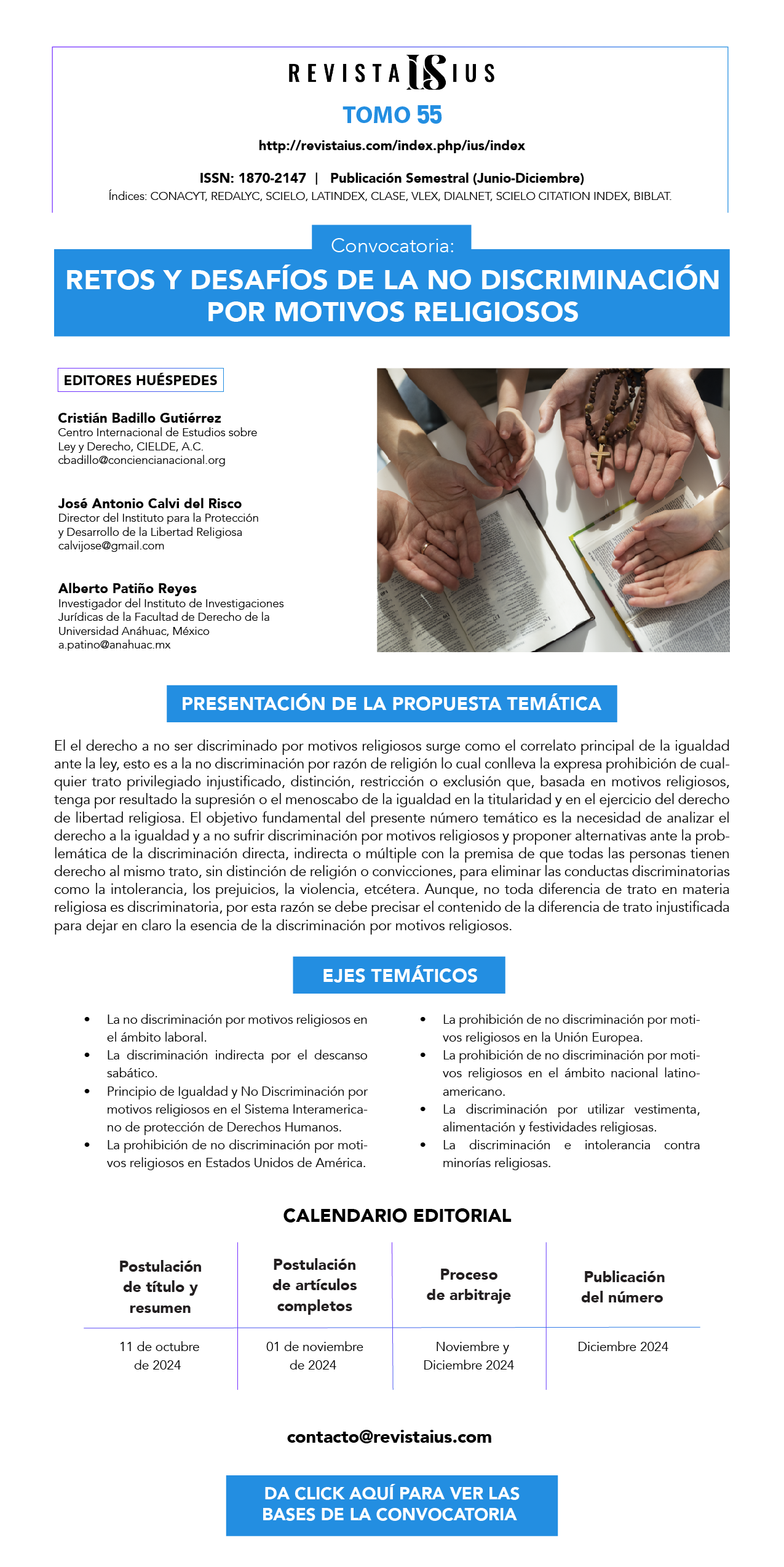The Cuban Civil Status Registry at the gates of the new Family Code. A study from the point of view of the Spanish Civil Registry
DOI:
https://doi.org/10.35487/rius.v17i51.2023.918Abstract
The Family Code Bill provides for the modification,
among others, of the Cuban Civil Status Registry Law
and its Regulations. Determine the congruences and
incongruencies that occur between these regulations
constitute the fundamental objective of the work,
which takes as a reference to its study of the Spanish
registration system, based on scientific methods of
the research such as analysis-synthesis, inductiondeduction
and law compared. As a result, a detailed
analysis of the reform of the registry regulations
is obtained that reveals that certain matters of
relevance both for the harmonic development of the
modifications, as well as, to achieve a more efficient
legal system in this area, are still pendent. In this, in turn,
a group of proposals is related aimed at improving the
content of the Law by thinking in terms of Civil Registry.
Downloads
Downloads
Published
Issue
Section
License

This work is licensed under a Creative Commons Attribution-NonCommercial-ShareAlike 4.0 International License.
Revista IUS, published by the Legal Sciences Institute of Puebla A.C., is distributed under the Creative Commons Attribution-NonCommercial 4.0 International (CC BY-NC 4.0) license.
We authorize collaborators to upload a copy of their published work on their personal websites or any Open Access repository, provided that Revista IUS is specifically cited as the original source, indicating the year and issue of the respective example and adding the link to the webpage on which this publication can be freely consulted in toto and without charge: http://www.revistaius.com
Readers are free to:
Share, copy and redistribute the material via any medium or format.
The licensor cannot revoke these freedoms as long as you follow the license terms.
Under the following terms:
Attribution: You must give appropriate credit, provide a link to the license, and indicate if changes were made.
You may do so in any reasonable manner, but not in any way that suggests the licensor endorses you or your use.
NonCommercial – You may not use the material for commercial purposes.
If you remix, transform or build upon the licensed material, its distribution is not permitted.
Charges for managing articles: Revista IUS will not charge for receiving, processing or publishing articles (Article Processing Charge, or APC) submitted by authors.





